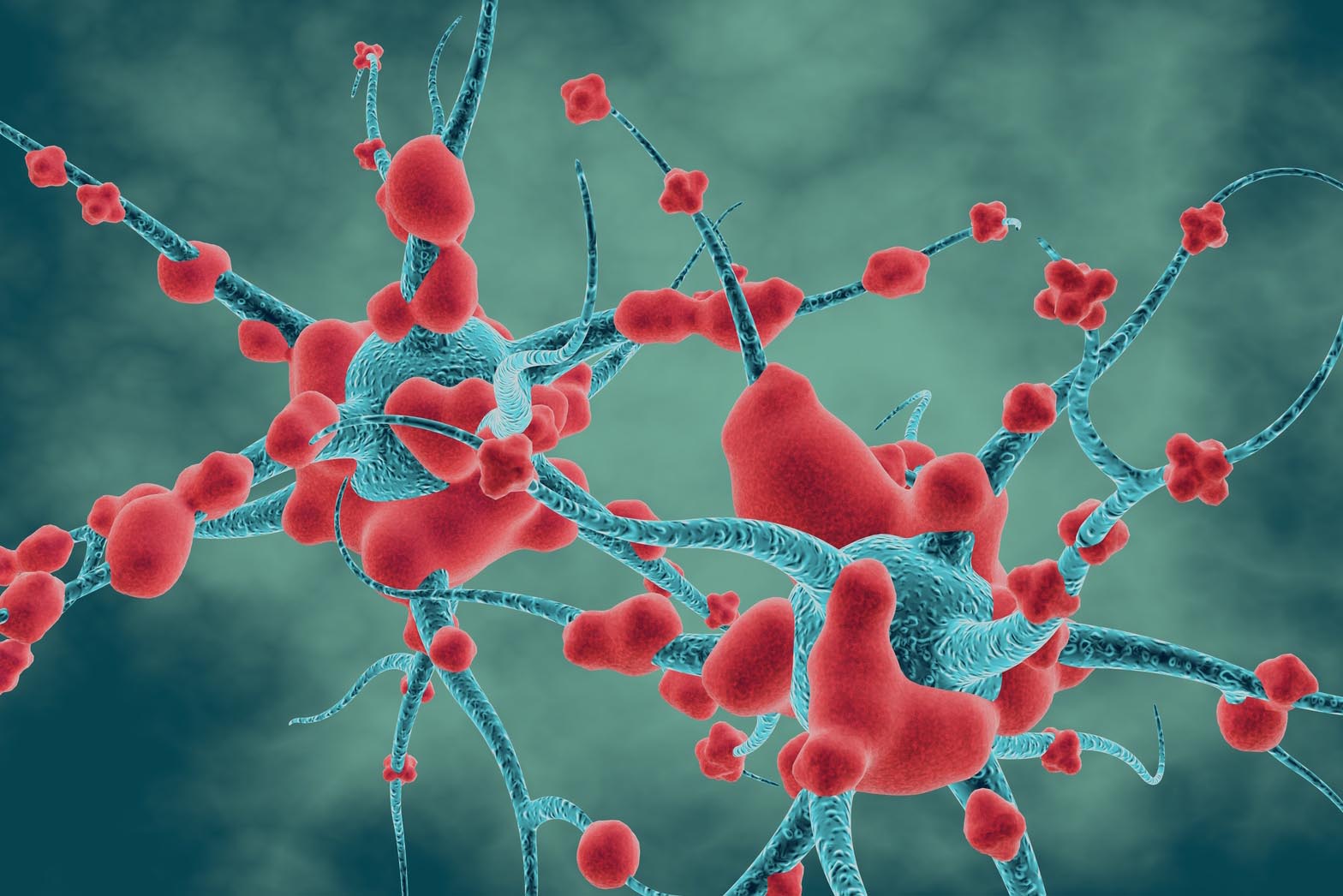-
What is already known on this topic
Multiple sclerosis (MS) is a disease that arises when the immune system attacks and damages myelin, the sheath that covers nerve fibers. Although the causes of the disease are unknown, previous studies have suggested that, in addition to genetic factors, a self-antigen can trigger MS. But this molecule hadn’t been identified yet. -
What this research adds
CD4+ T cells, a type of lymphocytes that are essential for cell-mediated immunity, react to a protein called GDP-L-fucose synthase, which is produced by human cells as well as by bacteria frequently found in the gut of people with MS. -
Conclusions
The results suggest that the gut microbiota plays a bigger role in the pathogenesis of MS than previously thought. More research is needed to further characterize the GDP-L-fucose synthase–specific CD4+ T cell response in MS.
A team of immunologists has found that GDP-L-fucose synthase, a protein produced by bacteria often found in the gut of people with MS, triggers an autoimmune response from T-cells in MS patients. The researchers, led by Raquel Planas at the University Hospital of Zurich, in Switzerland, have detailed their results in Science Translational Medicine.
Multiple sclerosis is an autoimmune disease in which immune cells target the nervous system, damaging the nerve insulator myelin. People with MS develop a wide range of symptoms, including muscle weakness and numbness. The cause of the disease is unknown, but potential triggers are genetic factors as well as a self-antigen – a molecule normally present in the body that is misidentified as a threat by the immune system.
To pinpoint the self-antigen involved in MS, the researchers isolated a CD4+ T-cell clone, called TCC21.1, from the cerebrospinal fluid of a patient with MS. Then, they determined which antigens stimulated TCC21.1.
To analyze the antigen reactivity of TCC21.1, the researchers used a positional scanning library that allowed them to test 200 fragment mixtures. They identified two stimulatory fragments derived from a protein called guanosine diphosphate (GDP)-L-fucose synthase. This enzyme is expressed in human cells as well as in the gut microbiota.
GDP-L-fucose synthase is the main self-antigen for CD4+ T cells
Next, the team analyzed the response of TCC21.1 to GDP-L-fucose synthase fragments presented by two types of antigen-presenting cells (APCs): autologous peripheral blood mononuclear cells (PMBCs) and immortalized B cell line (BCL). The results show that:
- GDP-L-fucose synthase fragments presented by both APCs induced TCC21.1 proliferation
- In addition to pro-inflammatory molecules such as granulocyte-macrophage colony-stimulating factor, TCC21.1 released anti-inflammatory TH2 cytokines
- GDP-L-fucose synthase fragments presented by BCL induced higher levels of pro-inflammatory IFN-γ compared to fragments presented by PBMCs
CD4+ T cells from multiple sclerosis patients recognize GDP-L-fucose synthase fragments
After showing that GDP-L-fucose synthase fragments stimulated the expansion of CD4+ T-cell populations in one MS patient, the researchers tested whether the same fragments triggered the proliferation of CD4+ T cells in other MS patients.
The team generated CD4+ T cell libraries from the cerebrospinal fluid of 23 people with multiple sclerosis and 8 people who had experienced only an isolated clinical attack. Nearly 40% of the patients showed a moderate to high response to GDP-L-fucose synthase fragments. In particular:
- In the responders, GDP-L-fucose synthase fragments induced mainly the production of pro-inflammatory IFN-γ
- Nearly 70% of the patients who showed a high response to GDP-L-fucose synthase also responded to myelin peptides, whereas only 17% of moderate responders and 11% of non-responders did
- All the high-responders were positive for a MHC II allele called HLA-DRB3*02:02, whereas only 17% of moderate responders and 21% of non-responders were HLA-DRB3*02:02-positive
CD4+ T cells recognize bacterial GDP-L-fucose synthase fragments
Since GDP-L-fucose synthase is also present in the gut microbiota, the researchers tested whether CD4+ T cells from 8 MS patients reacted to GDP-L-fucose synthase homologs isolated from commensal bacterial species.
CD4+ T cells from 4 of these patients proliferated in response to two bacterial GDP-L-fucose synthase fragments that are shared by bacteria belonging to the genera Akkermansia and Prevotella, which have been shown to be altered in the gut of MS patients.
In conclusion, the study identified GDP-L-fucose synthase fragments as the main targets of a T-cell clone likely involved in MS. These fragments are recognized by CD4+ T cells from MS patients. The recognition of homologous peptides from gut bacteria suggests that this putative self-antigen plays a role in CD4+ T cell-mediated responses. Further research is needed to assess the biological significance of the GDP-L-fucose synthase–induced T cell response in multiple sclerosis pathogenesis.









